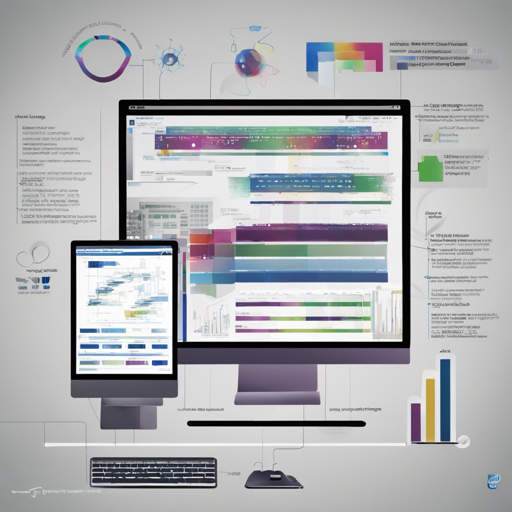Welcome to the exciting world of the Intel® Scalable Dataframe Compiler (Intel® SDC). This powerful extension of Numba enables the compilation of Pandas operations, automatically vectorizing and parallelizing your code. Let’s dive into how you can install, compile, and troubleshoot Intel® SDC seamlessly!
Installation of Intel® SDC
Getting Intel® SDC up and running involves a few straightforward steps. You can either install it via conda or wheel package formats. Here’s how:
1. Using Conda
- First, create a new conda environment:
conda create -n sdc-env python=3.6 or 3.7 -c anaconda -c conda-forgeconda activate sdc-envconda install sdc -c intellabelbeta -c intel -c defaults -c conda-forge --override-channels2. Using Wheel Package
- First, create a new environment with pip:
conda create -n sdc-env python=3.6 or 3.7 pip -c anaconda -c conda-forgeconda activate sdc-envpip install --index-url https:pypi.anaconda.org/intellabelbeta/simple --extra-index-url https:pypi.anaconda.org/intel/simple --extra-index-url https:pypi.org/simple sdcBuilding Intel® SDC from Source
Building Intel® SDC from source can be performed on both Linux and Windows. Here, we will use a simple analogy: Imagine you want to build your own car instead of buying a ready-made one. You will require a robust set of tools and a solid workbench. Similarly, to build Intel® SDC, you must have the right environment and dependencies set up on your operating system.
Building on Linux
- Set up your Anaconda distribution. If you don’t have conda, you can use Miniconda:
wget https:repo.continuum.io/miniconda/Miniconda3-latest-Linux-x86_64.sh -O miniconda.shchmod +x miniconda.sh
./miniconda.sh -b
export PATH=$HOME/miniconda3/bin:$PATHBuilding on Windows
- Ensure you have Build Tools for Visual Studio 2019. Install it from here.
- Install Miniconda for Windows from this link.
- Start the Anaconda prompt and follow similar conda-build or setuptools steps as mentioned for Linux.
Troubleshooting
As with any development journey, you might run into a few bumps along the way. Common issues and their resolutions include:
- If you encounter an error regarding the ‘cl’ compiler not being able to find ‘rc.exe’, ensure Windows Kits are added to your PATH.
Example:
C:Program Files (x86)Windows Kits8.0binx86 - For vague errors related to keywords, check if your versions of conda or Visual Studio are updated to their latest releases.
- Upon facing persistent issues, consider reinstalling in a new conda environment, to provide a clean slate.
For more insights, updates, or to collaborate on AI development projects, stay connected with fxis.ai.
Building Documentation and Running Tests
Building the user guide requires Intel® SDC installed along with a compatible version of Pandas and Sphinx. Check out the documentation processes in the README for detailed instructions on generating and viewing documentation.
Conclusion
Building and working with the Intel® Scalable Dataframe Compiler opens doors to efficient data processing and higher-performance analytics. At fxis.ai, we believe that such advancements are crucial for the future of AI, as they enable more comprehensive and effective solutions. Our team is continually exploring new methodologies to push the envelope in artificial intelligence, ensuring that our clients benefit from the latest technological innovations.

